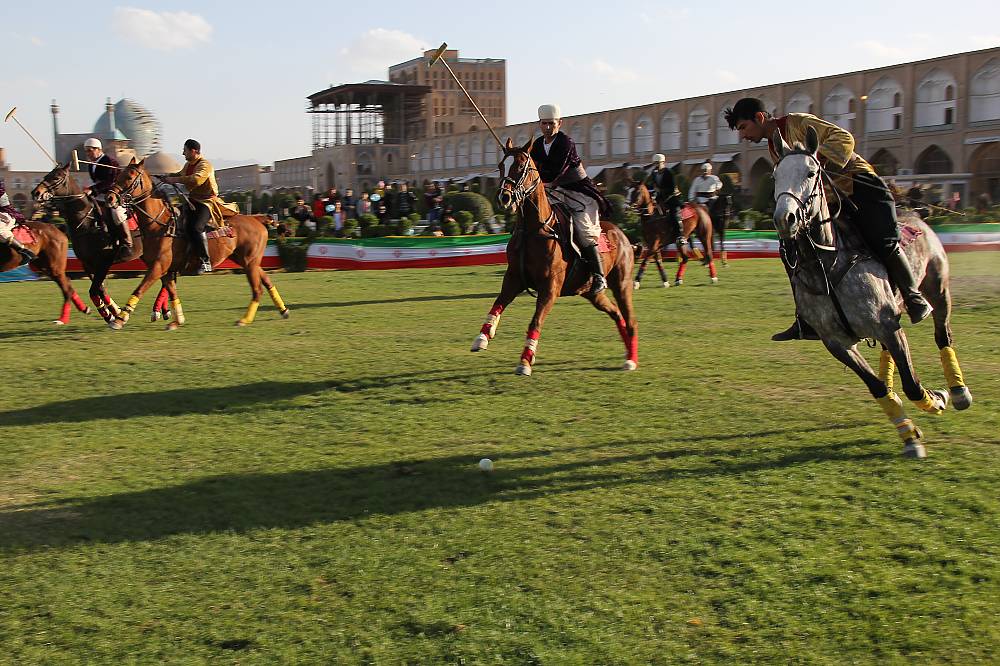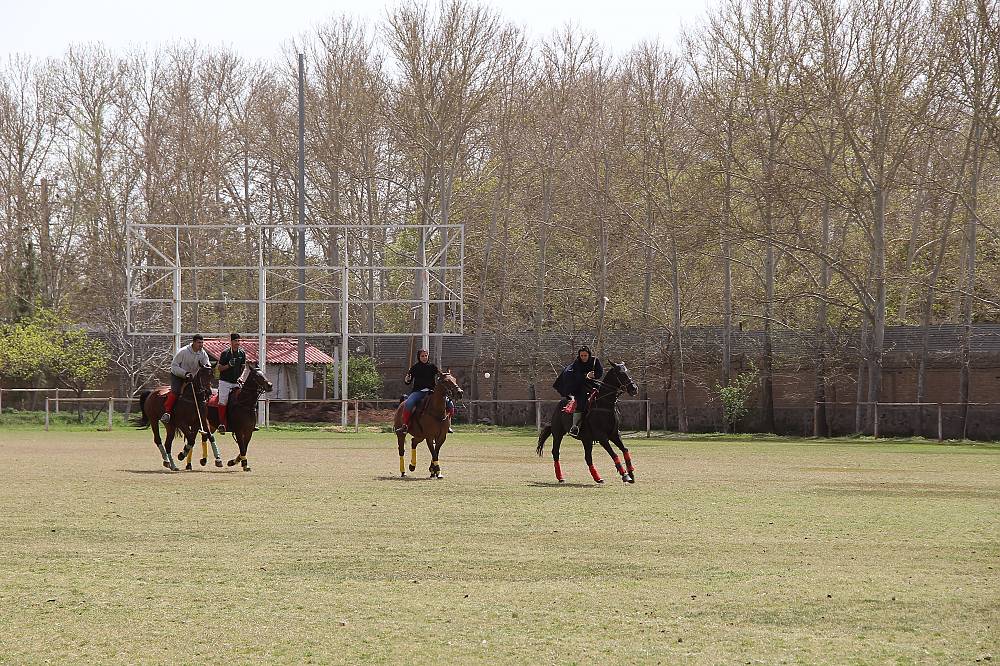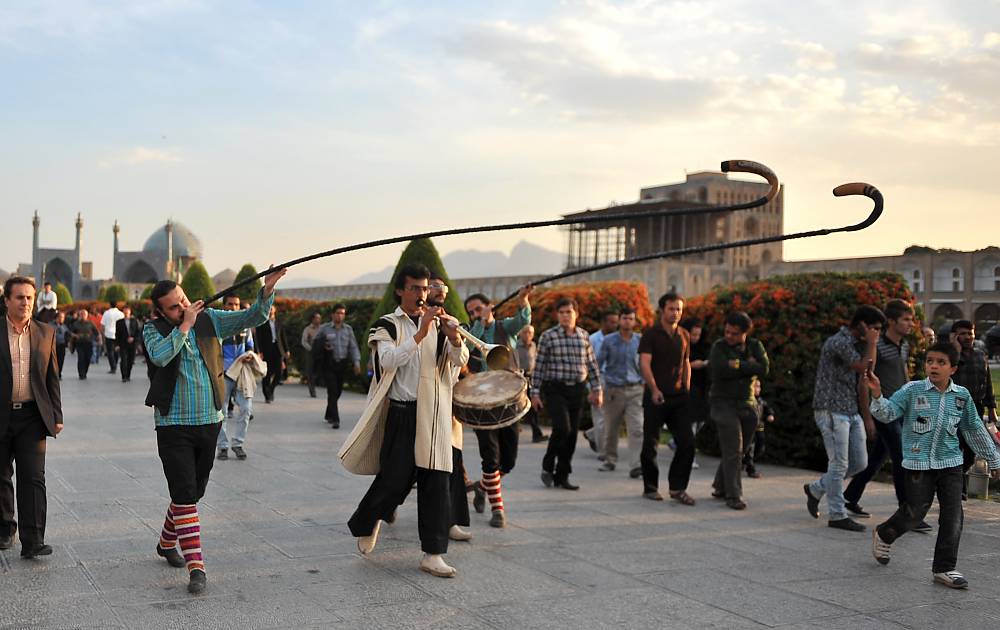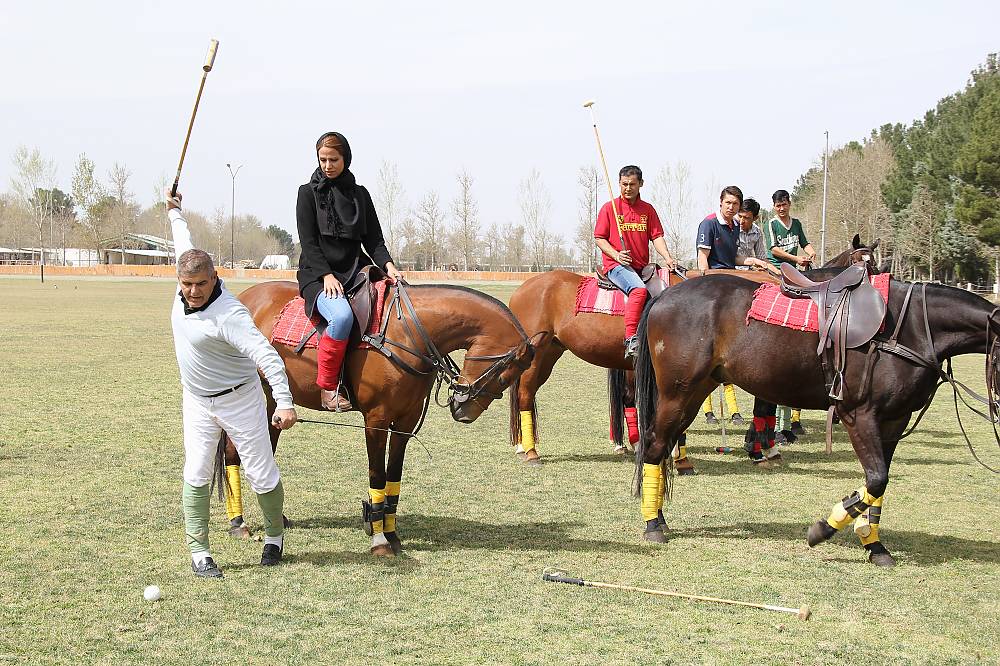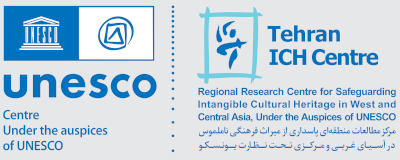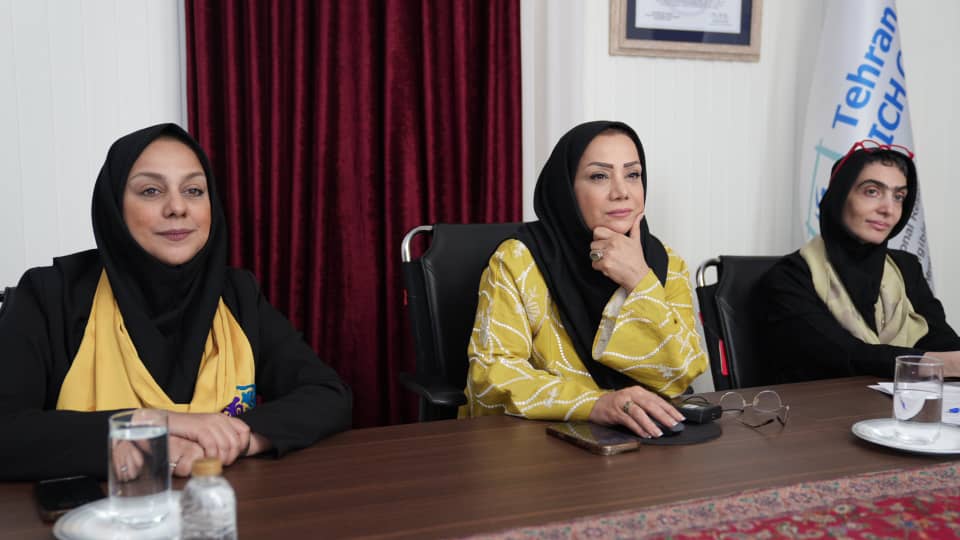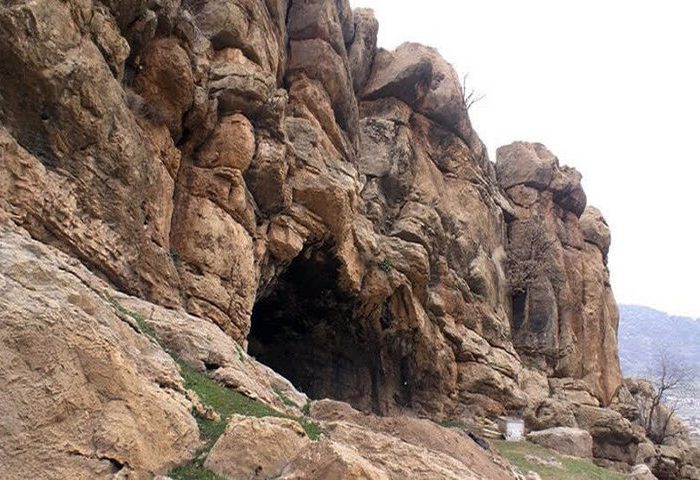Chogān is a traditional horse-riding game accompanied by music and storytelling; it has a history of over 2,000 years in Iran and has mostly been played in royal courts and urban fields. In Chogān, two rider teams compete and the aim is to pass the ball through the opposing team’s goal posts using a wooden stick. Chogān includes the main game, a corresponding musical performance and storytelling. Bearers include three primary groups: the players, the storytellers and the musicians. Chogān is a cultural, artistic and athletic element with a strong connection to the identity and history of its bearers and practitioners. It has a strong presence in the literature, storytelling, proverbs, handicrafts and ornaments that are valuable parts of the symbolism of its practitioners. As an element that promotes the health of the body and soul, Chogān also establishes a connection between nature, humankind and horses. Traditionally, transmission has occurred informally within the family or in workshops, and Chogān techniques continue to be actively safeguarded by families and local practitioners. However, over the last decades, Chogān associations have also been established, which hold training courses, support local masters and provide assistance in transmitting all aspects of Chogān while safeguarding local diversity.
